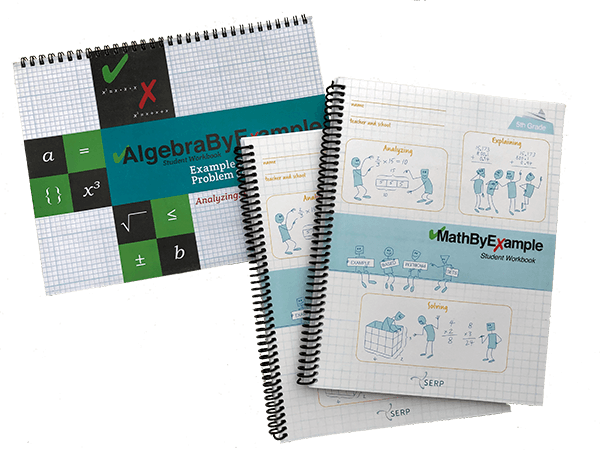About Learning with Examples
The general culture of the math classroom in the United States is that errors are this taboo thing that are meant to be gotten rid of as soon as they're made. We're changing that and making the error the focal point of the instruction. We're giving the students a chance to engage with errors without the stigma of it having been their own error. The goal is for students to realize that errors can be a productive part of the learning process, and that by making errors in the classroom, it doesn't mean a student is “not a math person,” but that making mistakes is all part of the process and leads us to become better math learners.
Dr. Julie Booth, Temple University
Why this approach?
Learning via Self-Explanation
Explaining Correct Solutions
Learning via Explanation of Incorrect Solutions
In half of the exercises, students receive an incorrect problem solution and are asked to explain why it is incorrect. This type of activity is believed to improve learning because it helps students to reject their own similar, incorrect procedures. The idea that errors can be effective learning tools is not new: Studies show that asking students to explain both incorrect and correct solutions leads to greater learning. Worked examples can also help motivate students, especially those who are underrepresented in the mathematically proficient.
Why we extended the “ByExample” approach to grades 4 & 5.
Analysis of SERP's AlgebraByExample materials revealed that many misconceptions have their roots in earlier grades. Addressing elementary math misconceptions before middle school is doubly important because early student failure can decrease motivation, hindering students’ future success even further. Traditional practice activities do not address common misconceptions about the problems to solve, allowing misconceptions to linger long after elementary school. Addressing this early is even more important as standards for rigor rise. Better-prepared students will free teachers in higher-level math courses to focus on grade-level content, making it more likely that students will succeed in higher-level math.
Read more about Developing and Testing the “ByExample” Approach on the AlgebraByExample website.


